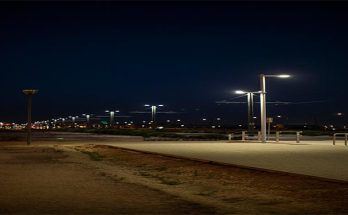
In the rural Dodoma, where the sun sinks behind acacia trees and dusty roads stretch endlessly, nights once meant darkness and uncertainty. For thousands of residents, life after sunset was defined by torches, kerosene lamps, and limited activity. Across Sub-Saharan Africa, this reality is far from rare, according to the World Health Organization (2021), nearly 60% of essential facilities lack reliable electricity lighting, and 25% remain completely off-grid.
The narrative is changing through Kijanisha Afya, a transformative programme led by the Energy and Livelihoods for Communities (ELICO) Foundation with support from the Embassy of Ireland in Tanzania. Equipped with 5kW hybrid inverters, 6.5kWp solar panels, and 5kWh battery banks, several rural centres are stepping into the light. Stable electricity now powers lighting, cold storage, equipment, and digital tools, enabling communities to function beyond daylight hours. As one resident put it. We no longer work in the dark. It feels safer – for us and for everyone around us.
The impact extends beyond fixed power light solutions. In Makamaka village, solar lighting energy has enabled electric motorbikes that connect distant households to vital services and resources. Where communities were once cut off due to poor roads and infrastructure, workers can now travel up to 60 km per charge, delivering supplies, collecting data, and reaching families faster. In regions where limited mobility once slowed progress, these solar-powered vehicles are opening up entirely new possibilities ensuring that energy doesn’t just stay in one place but fuels connectivity and development.
In Rofati and other surrounding villages, the arrival of solar systems and e-mobility solutions has accelerated reporting, logistics, and access to information. A process that once took days can now be completed within hours, creating a ripple effect across community development. With reliable energy lighting, residents are using digital tools more effectively, accessing government resources online, and strengthening coordination between remote areas and central hubs.
Projects like Kijanisha Afya prove that change is possible and scalable. Every solar lighting panel installed, every e-motorbike deployed, and every battery bank connected pushes these regions closer to energy independence and climate resilience.Where light reaches, safety improves. Where electricity flows, opportunities multiply and where clean energy thrives, communities grow stronger and more connected. As Tanzania pushes toward universal energy access, programmes like Kijanisha Afya show what is possible, a model that blends renewable energy, mobility, and digital inclusion into a future where no one is left behind. Because when the lights come on, progress begins.


